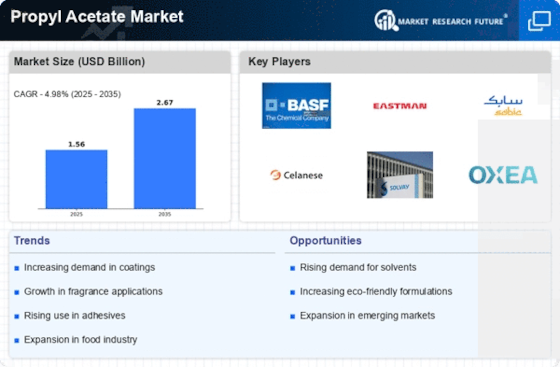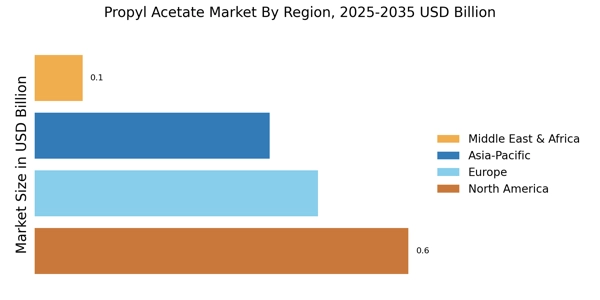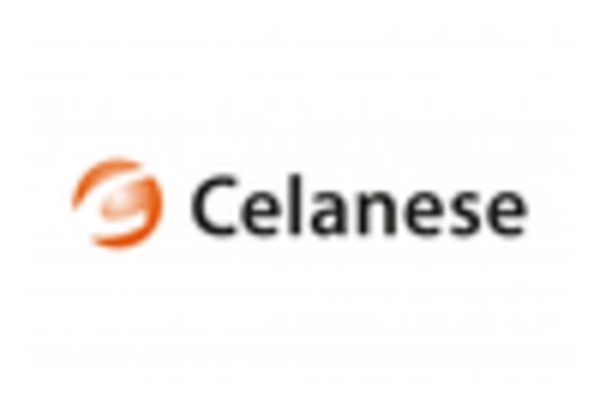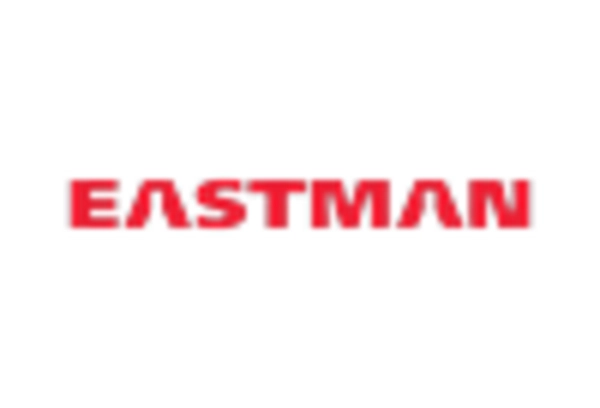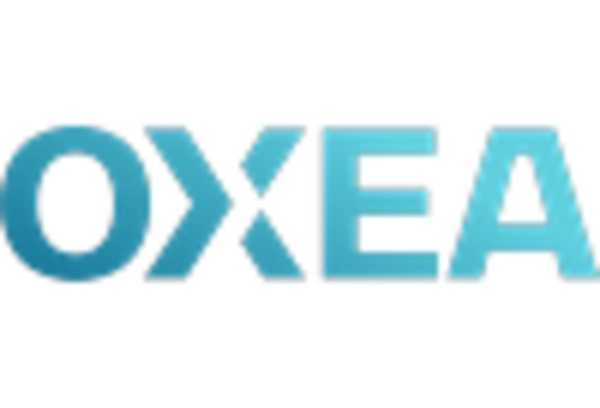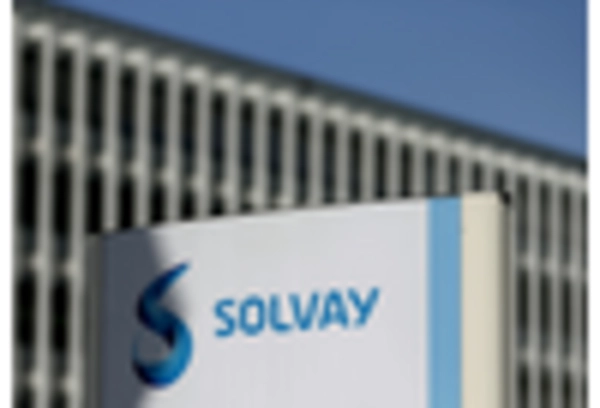Rising Demand in Coatings and Paints
The Propyl Acetate Market is experiencing a notable increase in demand from the coatings and paints sector. This growth is primarily driven by the expanding construction and automotive industries, which utilize propyl acetate as a solvent due to its excellent properties. In 2023, the coatings segment accounted for approximately 30% of the total propyl acetate consumption, reflecting a trend towards high-performance coatings that require effective solvents. As environmental regulations tighten, manufacturers are increasingly seeking low-VOC (volatile organic compound) alternatives, further propelling the demand for propyl acetate. The versatility of propyl acetate in formulating various types of coatings, including water-based and solvent-based systems, positions it as a preferred choice among manufacturers. This trend is likely to continue, suggesting a robust growth trajectory for the Propyl Acetate Market in the coming years.
Growth in the Food and Beverage Sector
The Propyl Acetate Market is witnessing a surge in demand from the food and beverage sector, where it is utilized as a flavoring agent and solvent. The increasing consumer preference for natural and organic products has led to a rise in the use of propyl acetate in food applications, as it is recognized for its fruity aroma and flavor profile. In 2023, the food and beverage segment represented around 15% of the overall market share for propyl acetate, indicating a significant opportunity for growth. As the industry continues to innovate with new flavors and formulations, the demand for propyl acetate is expected to expand. Additionally, the rising trend of convenience foods and ready-to-eat meals is likely to further enhance the utilization of propyl acetate, thereby contributing positively to the Propyl Acetate Market.
Increased Focus on Eco-Friendly Solvents
The Propyl Acetate Market is experiencing a shift towards eco-friendly solvents, driven by heightened environmental awareness and regulatory pressures. As industries strive to reduce their carbon footprint, propyl acetate is gaining traction due to its relatively low environmental impact compared to traditional solvents. In 2023, the market for eco-friendly solvents, including propyl acetate, was estimated to grow at a compound annual growth rate (CAGR) of around 6%. This trend is indicative of a broader movement within various sectors, including coatings, adhesives, and cleaning products, to adopt sustainable practices. The ability of propyl acetate to meet both performance and environmental standards positions it favorably within the Propyl Acetate Market, suggesting that its adoption will likely increase in the coming years.
Expanding Applications in Pharmaceuticals
The Propyl Acetate Market is increasingly being influenced by its applications in the pharmaceutical sector. Propyl acetate serves as a solvent in the formulation of various pharmaceutical products, including tablets and liquid medications. The pharmaceutical industry has been growing steadily, with a reported annual growth rate of approximately 5% in recent years. This growth is expected to drive the demand for propyl acetate, as manufacturers seek effective solvents for drug formulation. Furthermore, the trend towards more complex drug formulations necessitates the use of high-quality solvents, which propyl acetate provides. As the pharmaceutical sector continues to evolve, the Propyl Acetate Market is likely to benefit from this expanding application, suggesting a promising outlook for future growth.
Technological Innovations in Production Processes
The Propyl Acetate Market is being positively impacted by technological innovations in production processes. Advances in manufacturing techniques, such as improved distillation and purification methods, have enhanced the efficiency and yield of propyl acetate production. These innovations not only reduce production costs but also minimize waste, aligning with the industry's sustainability goals. In recent years, the production capacity of propyl acetate has increased, with several manufacturers reporting enhancements in their operational efficiencies. This trend is expected to continue, as companies invest in research and development to optimize their processes. Consequently, the Propyl Acetate Market is likely to benefit from these advancements, leading to increased availability and potentially lower prices for consumers.


